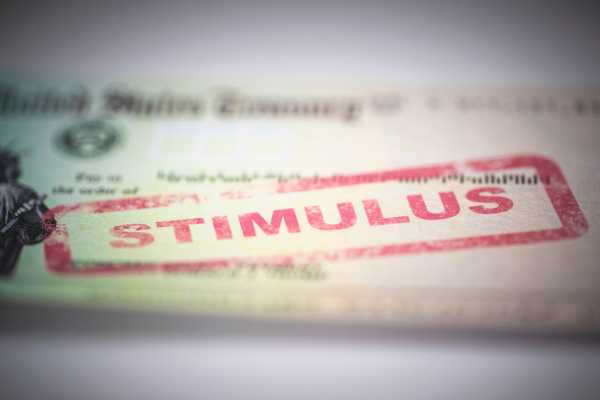A year has passed since El Salvador became the first country to take a leap of faith and introduce the Bitcoin law.
Aiming to increase financial inclusion and provide Salvadorians with access to Bitcoin transactions, president Nayib Bukele had seemingly gotten ahead of himself, placing the nation’s hope in the digital token.
So, what does the country’s crypto situation look like in 2022?
The Rearview Mirror of El Salvador
Introducing a Bitcoin wallet as a structure in a country where almost 70% of people don’t own a bank account or credit card is a risky business. El Salvador’s attempt to build a financial ecosystem based on Bitcoin attracted the attention of many.
As part of this ambitious attempt, president Bukele partnered with digital wallet company Strike. However, the Bitcoin initiative ended up with a sore score.
A year later, El Salvador’s economy is subject to threats on all fronts.
El Salvador’s Economic Status
One of their biggest concerns is that the country will not be able to settle its loan obligations. El Salvarod remains vulnerable to debt default, and even if it retires part of its debt, the country is sure to face difficulty securing a loan. Lenders are not keen on collaborating with countries that embark on such experiments as the Bitcoin initiative.
As research shows, the Salvadoran economy is yet to meet its crisis with a debt-to-GDP ratio of nearly 90% paired with a massive deficit and no plan on how to reduce it. El Salvador is racing against the clock with an $800 million debt payment due by January 2023.
To make matters worse, rating agencies have knocked down El Salvador, making it difficult, if not impossible, for the Salvadoran government to get its hands on much-needed cash.
The Backlash Effect
After the Bitcoin Law was passed in September 2021, Bukele and his government launched the virtual wallet named Chivo, promising residents no-fee transactions and seamless cross-border payments.
Salvadorans also received an initial $30 upon registration; however, this led to problems such as identity theft as hackers attempted to steal the signup Bitcoin bonus. The use of cryptocurrencies in Latin America remains far behind when compared to other parts of the world.
However, the government’s efforts to promote the Chivo wallet received major backlash, and as one report by the US National Bureau of Economic Research shows, only 20% of those who downloaded the wallet proceeded to use it after spending the registration bonus.
Another survey by the Chamber of Commerce and Industry of El Salvador found that more than 85% of businesses have never made a Bitcoin sale, even though the law mandates it.
The Cost of Bitcoin Implementation
Since day one, tech-savvy President Bukele has consistently updated all his cryptocurrency ventures on Twitter. On the same day the Bitcoin Law took effect, Bukele took to Twitter and revealed that the Salvadoran government began adding Bitcoin to its offers.
Fast forward to today, due to increased interest rates and bankruptcies within the industry, the price of this digital token has plunged more than 60%.
El Salvador’s losses during the past year remain mainly unrevealed, as the purchases were never transparent. Salvadorians have no way of knowing how much of their taxes participate in buying Bitcoin.
The only way of tracking the investment record is through Bukele’s Twitter account. His public announcements of Bitcoin purchases and reports from his portfolio tracker remain the only sources available.
Government Spending on Bitcoin
Though little information is available, claims from some local Slavaroan sources suggest that El Salvador has spent around $374 million on the implementation of Bitcoin.
- $150 million Trust – In August 2021, the Legislative Assembly approved a $150 million trust for implementing Bitcoin as a legal cryptocurrency.
- $120 million on the Chivo Platform – A Goat Bonus of $120 million was used to grant the $30 welcome bonuses that the government issued to get more people to use the app.
- Bitcoin Purchases – Estimates point out that the government has spent more than $104 million during the recent year.
Final Thoughts
Introducing a modern crypto installation to a nation that is mainly cash-based in an effort to make using Bitcoin a standard in residents’ lives is a gamble. Some argue that the changes regarding the country’s economic status, along with other consequences of this radical experiment, will reach the surface in time, meaning the fate of El Salvador is yet to be revealed.

 Kenya Finance Bill: Vehicle Owners To Bear The Brunt, Will Have To Pay Annual Tax Of Up To Ksh 100,000
Kenya Finance Bill: Vehicle Owners To Bear The Brunt, Will Have To Pay Annual Tax Of Up To Ksh 100,000 Choosing the Best MTF Service Provider: Factors to Consider
Choosing the Best MTF Service Provider: Factors to Consider Alaska $1300 Stimulus Check May 2024 – Stimulus Checks for Everyone? Payment Dates & Eligibility
Alaska $1300 Stimulus Check May 2024 – Stimulus Checks for Everyone? Payment Dates & Eligibility Unveiling the Hidden Costs of Inventory: Types and Impact Analysis
Unveiling the Hidden Costs of Inventory: Types and Impact Analysis Insuring Your Tomorrow: Navigating Life Insurance Planning
Insuring Your Tomorrow: Navigating Life Insurance Planning Advance in Forex Trading with AlfaXM
Advance in Forex Trading with AlfaXM Fake Videos of NSE CEO Ashish Chauhan Recommending Stocks in Circulation, NSE Issues Caution
Fake Videos of NSE CEO Ashish Chauhan Recommending Stocks in Circulation, NSE Issues Caution  Navigating the Loan Landscape: Your Guide to Loans in Canada
Navigating the Loan Landscape: Your Guide to Loans in Canada